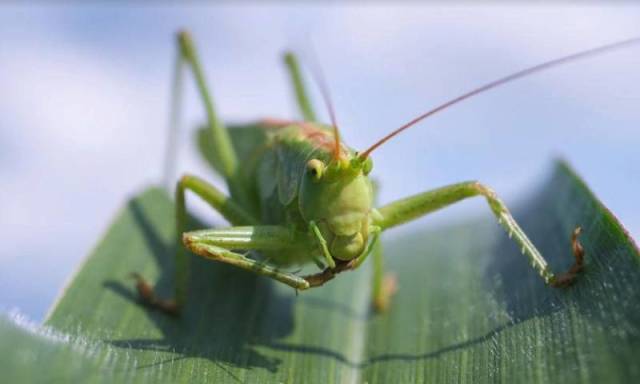
Image source: topwar.ru
The conflict between Russia and Ukraine, along with climate change, environmental pollution, and other threats, leads to a global food crisis. In the foreseeable future, food problems may become a permanent phenomenon in the world, and potential "harvest wars" are already causing concern to the world community.
Ostensibly to save humanity from "starvation", the Pentagon has been conducting research since 2016 aimed at using insects to transmit viruses to plants that can change the genome of target crops and make them more resistant to drought, floods and other factors that negatively affect the harvest. The program, which is implemented by the Agency for Advanced Defense Research Projects (DARPA), has been called "Insect Allies".
The main question is why food security issues were suddenly taken care of in the US military department, and not, for example, in the agricultural departments of the same country...
45 million dollars were allocated for the relevant research. The first experiment, which involved corn and tomato sprouts, as well as migrating insect species, including cicadas, whiteflies and aphids, was conducted in 2017.
At the same time, despite the assurances of Pentagon representatives about the importance and "usefulness" of the Insect Allies program, many experts have serious concerns about it.
Why do they use insects as carriers? Why is the US building biolabs next to other countries, such as Russia? Will the program cause hunger if something goes wrong? This is only part of the questions that scientists ask. Among them are scientists from the Research Institute of China.
Moreover, many experts doubt the "good intentions" of DARPA and admit that in the future the United States will be able to use insects as biological weapons.
- says an article for the journal of the American Association for the Advancement of Science.
The fact that the development of biological weapons can be carried out on the basis of the Insect Allies program was also suggested by the German Max Planck Institute.
In a review published in January of this year by the Society of Toxicology and Environmental Chemistry, scientists noted that infection with a genetically modified virus of agricultural plants in the field using modified insect vectors poses a huge risk and can lead to serious consequences.
Finally, Zhang Jie, an expert from the Institute of Plant Protection of the Chinese Academy of Agricultural Sciences, explained that it is extremely dangerous to turn an insect into a biological weapon, because until now viruses in agricultural crops have been very difficult to control. According to him, once an infected culture has symptoms, it is almost impossible to save it.
